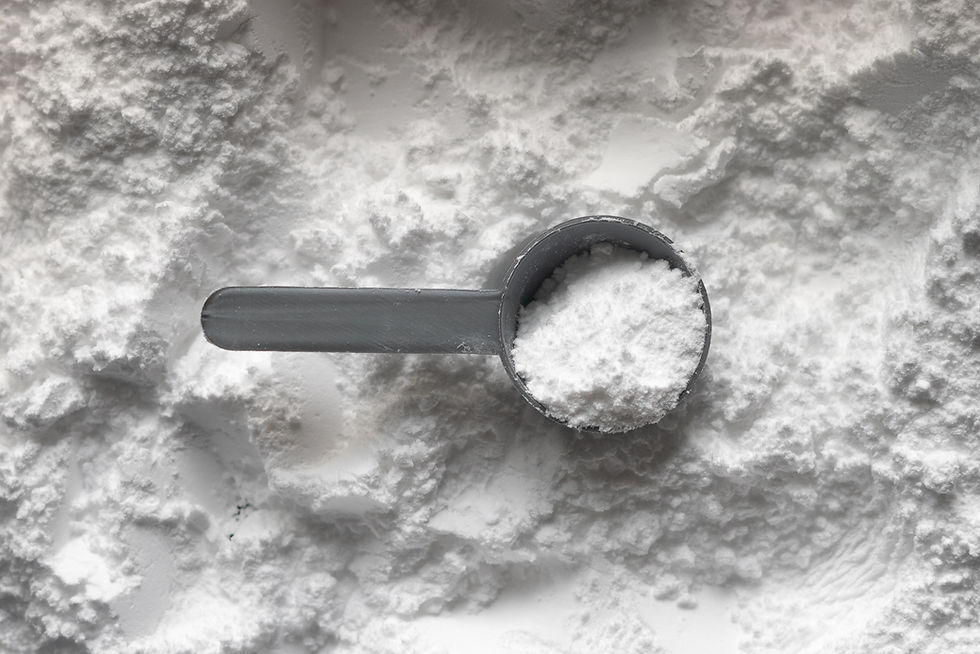Is Menobelly an urban myth, and can men get it, too?
- angelaamiricpt
- Jun 22, 2024
- 3 min read

While there are some great advantages to midlife, menopause is not one that most women look forward to. Sure, you no longer have to deal with a monthly cycle, but aside from that, it's challenging to witness changes in your body, skin, and hair. Additionally, you may experience night sweats, hot flashes, insomnia, gradual weight gain - especially around the midsection. There is hair loss that doesn't regenerate, and a newfound difficulty in losing weight compared to your 20's and 30's and even early 40's. Metabolizing refined carbs and sugars seems impossible and it ends up getting stored as fat on your waistline instead, a condition social media has fondly labeled "Menobelly". Yay.
By the way, men go through this in their midlife, too. Changing hormones, declining testosterone, reduced muscle mass, and the same metabolic issues can lead to an expanding belly.
I have had to deal with this myself, and no two women seem to respond to the same modifications to diet and exercise routine. I have had to learn that intermittent fasting, adding creatine every few days to my shakes, and cutting gluten and most dairy has helped, in conjunction with at least 4 days of strength training and cardio. I never would have intermittent fasted in my 40's and gluten, sugar, alcohol and dairy were easily metabolized. Not in my 50's. Each decade brings different modifications. Your body becomes like a Rubik's Cube, trying to figure out the best methods to minimize body fat as signs of sarcopenia creep in. It can be very frustrating.
Here are 5 tips to avoid "Menobelly":
Balance Your Diet:
Reduce Refined Carbs and Sugars: Minimize intake of sugary foods, white bread, and other refined carbs to prevent blood sugar spikes and fat storage. Limit alcohol to 2 drinks per week, and avoid fruity cocktails. Skip high carb meals at dinner.
Increase Fiber Intake: Include more fruits, vegetables, whole grains, and legumes to help control appetite and improve digestion.
Healthy Fats: Incorporate sources of healthy fats, such as avocados, nuts, seeds, and olive oil, which can help manage inflammation and support hormone balance. Don't overdo the fat, however.
Protein-Rich Foods: Ensure each meal includes protein, such as lean meats, fish, protein shakes, and eggs to promote satiety and muscle maintenance.
Try intermittent fasting, and eat within a 6 hour window, timing workouts around your eating and vica versa. Consult a doctor if needed before doing this.
Engage in Regular Physical Activity:
Cardio Workouts: Activities like walking, jogging, swimming, or cycling can help burn calories and reduce overall body fat. HIIT style workouts for 20 minutes 2-3 times per week as part of your workout are the best fat burners.
Strength Training: Build muscle mass and boost metabolism by incorporating weight lifting or resistance exercises at least 3-4 times a week.
Core Exercises: Include exercises that target the abdominal area, such as planks, crunches, and Pilates, to strengthen and tone your midsection.
Manage Stress:
Stress Reduction Techniques: Practice yoga, meditation, or deep breathing exercises to lower cortisol levels, which can contribute to fat accumulation in the belly area.
Regular Relaxation: Incorporate hobbies and activities that you enjoy and find relaxing to help manage stress.
Ensure Adequate Sleep:
Consistent Sleep Schedule: Aim for 7-9 hours of sleep per night and maintain a regular sleep-wake cycle.
Sleep Hygiene: Create a restful sleep environment by keeping your bedroom cool, dark, and quiet, and establish a pre-sleep routine to wind down.
Monitor Hormonal Changes:
Consult a Healthcare Provider: Discuss any severe menopausal symptoms with your doctor. They can provide advice or treatment options, such as hormone replacement therapy (HRT), which may help manage weight gain.
Stay Informed: Keep track of how your body responds to different dietary and lifestyle changes and adjust accordingly.
Stay Hydrated:
Drink Plenty of Water: Staying hydrated can help control hunger and improve digestion. Aim to drink at least 8 cups of water a day, or more if you’re active or live in a hot climate. I personally recommend one gallon per day on days you work out.
By combining a balanced diet, regular exercise, stress management, adequate sleep, and monitoring hormonal changes, you can effectively address and reduce menopause belly.
Need help with menobelly? Find me here:









Comments